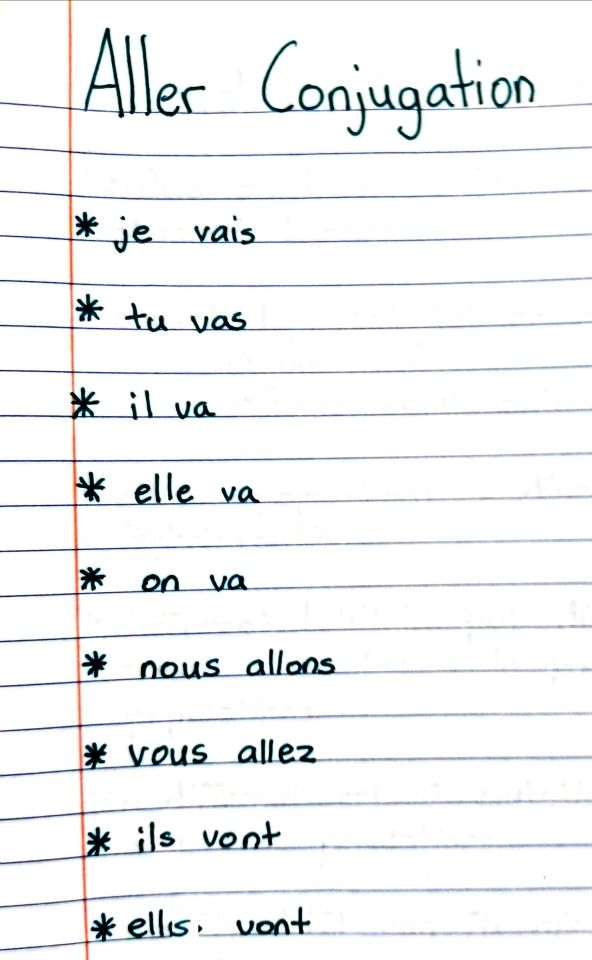#french conjugation
Text
Encourager Conjugation
J'encourage = I encourage
Tu encourages = You encourage
Il encourage = He encourages
Elle encourage = She encourages
Nous encourageons = We encourage
Vous encouragez = You encourage
Ils encouragent = They encourage (m)
Elles encouragent = They encourage (f)
.
Patreon
#studyblr#notes#langblr#language#french#french studyblr#french notes#french langblr#french language#conjugation#conjugation notes#verb conjugation#french verbs#french conjugation#french verb conjugation#romance languages#latin languages
11 notes
·
View notes
Text
i find it so cool to notice that like non-native speakers making mistakes in their second language tells you about the grammar and vocab of their native language like that's so cool to me.
like i can only pull up confident examples from french bc i learned that one but like etoiles saying "watch the chests" instead of "look at/in the chests" is because in french i imagine he'd use the verb "regarder" which does translate to "to watch" but also can be used when we in english would say "to look"!!!!!! that's cool!!!!! and sometimes i'll hear the french saying along the lines of "wait me" bc that's the grammar for it in french!!! "attends-moi" is "wait for me" they just don't say "for" it's cool!!!!!! wow!!!!! i fucking love that i think that's so fucking neat bc i know that I MADE that mistake in the other direction, bc on an assignment i wrote "attendez pour moi" bc we say for in english!!!!!!!! and it was wrong!!!! and it's cool!!!!!! it's cool that i can pick up things about other languages even when they're not speaking the other languages!!!!!! wow!!!!!!!!! like when spanish speakers start english sentences with "is" bc that's how it works in spanish!!!!!! that's so cool!!!!!! they don't need "it" in spanish and hearing y'all say that is like wow!!!! i'm learning things about how spanish sentences work even though it's not even in spanish!!!!! holy shit!!!!!!!
i know i've noticed more things from the other languages too but i can't remember any of them now bc my spanish is "69 days on duolingo" and my brazilian portuguese is "meu deus" but if anyone else has noticed please!!!!! tell me!!!!! it's so cool!!!!!!
(as an aside this is not to knock or mock anyone for being bad at a second language i just think it is FUCKING FASCINATING i am giggling i am kicking my feet i think it is so cool it is so fucking dope language and language learning is so cool)
#sorry if i conjugated attendre wrong i suck at conjugation!!!! while i'm talking about conjugation fuck subjonctif what!!!!!!! is that!!!!!#sorry i apologize just subjonctif is among the tenses i still do not understand when to use sobs and the conjugations are irregular#and i am simply not french enough sobs#qsmp#shut up vic#block game brainrot#what do i tag this. lol
768 notes
·
View notes
Text
multilingualism poll because im curious
& feel free to specify in the notes which ones!
edit: i meant to write *and, not “or”
#polls#languages#bilingual#i consider myself bilingual but i can understand 4-5 written languages#including english (duh) spanish italian portuguese and sometimes french#in the sense that they share a lot of roots and conjugations#and i’ve studied 4#spanish french italian and swahili
948 notes
·
View notes
Text
Diary entry 383
ho visto questo esercizio sui verbi e m'è piaciuto per cui voglio provare con un multilingual post (anche perché i verbi in spagnolo: non pervenuti per me -ma pure in francese ormai... dispersi)
ENG - ITA - KOR - FRA - ESP
verb: to eat, mangiare, 먹다, manger, comer
I eat
Io mangio
저는 먹어요
Je mange
Yo como
I ate
Io ho mangiato/mangiai
저는 먹었어요
J'ai mangé/mangeai
Yo he comido/comí
I will eat/I am going to eat
Io mangerò/sto per mangiare
저는 먹을 거예요
Je mangerai/vais manger
Yo comeré/voy a comer
I am eating
Io sto mangiando
저는 먹고 있어요
Je suis en train de manger
Yo estoy comiendo
I was eating
Io stavo mangiando
저는 먹고 있었어요
J'étais en train de manger
Yo estaba comiendo
I want to eat
Io voglio mangiare
저는 먹고 싶어요
Je veux manger
Yo quiero comer
I can eat
Io posso mangiare
저는 먹을 수 있어요
Je peux manger
Yo puedo comer
I have to eat
Io devo mangiare
저는 먹어야 해요
Je dois manger
Yo tengo que comer

#polyglot#multilingual#diary#languages#korean#learning korean#french#spanish#english#italian#verbs#verbs conjugation
32 notes
·
View notes
Text
would akechi speak multiple languages? cause at this point its basically canon that he soaks up information like a sponge. would he go all out and get dictionaries and textbooks and pronunciation guides or would he be able to learn just from watching shows in the target language?
im asking bc i wanna know if he would memorize every single verb tense in french. 99% of them are unnecessary, useless, needlessly specific, and so similar to like five others. but would akechi be able to use them properly.
#saiki k#saiki kusuo#the disastrous life of saiki k#saiki no psi nan#he would 100% be able to school a native speaker#most french people cant even get their verb tenses right all the time#i wanna hear akechi spitting french SO FAST that hes basically just a collection of the r sounds and keysmash#WOULD HE ROLL HIS RS?? oh my god.#i dont know enough about other languages to make stuff up for this so if anyone else is bilingual/studying another language please add on#theres a whole website ik dedicated to conjugating french verbs bc theres SO MANY#i feel like hed learn english first bc lingua franca. would he learn latin so that he know the proper names of animals and stuff????
135 notes
·
View notes
Text
the great thing about reading the french dictionary cover to cover is that now whenever someone says a word i don't know i can be like "no spoilers please! i'm still in the A's!!"
#ne me divulgâche pas s'il te plaît! il me reste 751 pages!!!#(the whole dictionary is 900 pages but the last ~150 are proper nouns and conjugation tables so i'm not counting those)#francophones tag your spoilers challenge 2k23 😔#french#my posts#f#lecture du dico
115 notes
·
View notes
Text

Claude Jade, Domicile conjugal, François Truffaut, 1970.
10 notes
·
View notes
Text
nothing interesting here it's the exact same scene i just like seeing it
#french 13 isnt my favourite but i think she did a good job here. also in the gallery scene i liked that too#french yaz i love as much as english yaz#there IS smth interesting here btw but no one else will find it interesting but 'i know' is one of those#idk#like.........measuring things. for me. when im learning a new language#bc in english it's i know obvs and in french evidently it's 'i know' too - je sais#in dutch if you said 'i know' that'd be wrong#you have to say 'i know it'. or i suppose you could inverse it and do 'weet ik' and then you can leave out the 'it' but thats not the poin#so when im learning a new language im always like is it i know or is it i know it#and thats a stand in for lots of other similar questions of course#it's a never ending list of similar questions#but it's like the thing i remind myself of#so i dont go around saying 'ik weet'#i dont mind making like conjugation or grammar mistakes that much. thats like. it'll happen its whatever#but these kind of 'i can see how you got there but thats not how we say it' errors? hate it. dont want to make them#which is why i take forever to start writing/speaking bc yes i CAN make that sentence#but idk if thats how a french speaker would make that sentence so i'll wait until ive heard someone say 'je sais'#dont want to be speaking english/dutch with french words you know
15 notes
·
View notes
Text

Jean-Pierre Léaud in "Domicile Conjugal" (1970)
49 notes
·
View notes
Text
'voulez-vous coucher avec moi?' cat youre so right
#ily catalina alvarez#lil personal tidbit: back in school we used to use this phrase to learn conjugation in diff tenses in french#catalina alvarez#aftg#all for the game#nora sakavic#the sunshine court#tsc spoilers
9 notes
·
View notes
Photo

#french#studyblr#flashcards#notes#french notes#french flashcards#french studyblr#vocab#vocabulary#french vocab#french vocabulary#langblr#language#french langblr#french language#french words#learning french#learn french#french conjugation#conjugation in french#verb conjugation#french verbs#french verb conjugation
31 notes
·
View notes
Text
today may be a weird day for this bc i'm HOPING there won't be much of a trash fire in the tag, comparatively, but if discourse, neg, or server happenings get you stressed, pro tip!! THAT MEANS IT'S DUOLINGO TIME!!!!! channel your gamer rage and viewer stress into SICK NASTY LANGUAGE LEARNING
#qsmp#i was getting too wrapped up in rooting for my team so i closed stream and did duo until the server closed#it worked!!!! lmfao it worked during the election arc too so hot tip!#also if you don't think you're learning anything try doing a jump ahead quiz and see if you can pass it#french and spanish have enough overlap that for the last three days i've just been jumping ahead one at a time#today was the first time i actually failed one so now i get to finally learn a conjugation i don't know!#instead of just. more fucking nouns. lmfao#shut up vic#block game brainrot
47 notes
·
View notes
Text
crawling home from french class after being repeatedly beaten over the head by the passé composé
7 notes
·
View notes
Text




Jean Pierre-Léaud and Claude Jade in Domicile conjugal/ Bed and Board (1970) dir. François Truffaut
#domicile conjugal#bed and board#francois truffaut#jean pierre leaud#jean pierre léaud#claude jade#cinema#nouvelle vague#french film#french movie#french cinema#french new wave#new wave#films#film#truffaut#70s
11 notes
·
View notes
Text
would you all still love me if i learned french
#considering learning a language even though ive failed at spanish and italian in the past but i didnt really stick w em#ive just been trying to teach myself the alphabet n numbers by changing my phones language and using text to speech#i am learning how to say these things phonetically but i dont know how to spell em yet. however#why the FUCK didnt the french come up with original words for 70 and 90. do you know what 70 and 90 are in french.#70 is fucking 60-10. its literally the words for 60 and 10 together#and 90 is 80-10. WHY WOULD YOU DO THIS#it gets fucked up even more when 80 and 81 sound almost exactly alike. WHY .#and then 180 and 181 sound alike. please just make new words that dont sound like existing words#idk if ill stick w it but maybe. however we haven't even gotten around to verbs and the horrors of conjugating them#cant humanity just evolve to matrix level learning where you just load in a program and boom you know a language. or how to fly a helicopte
18 notes
·
View notes
Text
I want to make a list of everything that needs to agree with something in the time travel conlang, just to get my thoughts organized.
The guiding principle here is: Everything that might have cause to agree with something, does so. A Watsonian explanation for this would probably be something like, "there are a lot of ways time distortion could drop information or cause someone to miss it, and they would really like to know whether they're talking about their friend or an evil future version of their friend." The Doylist explanation is absolutely that I think it would be funny and fun and also I've never done any sort of agreement in a conlang before and have a lot to make up for.
The numbers this conlang inflects for are:
—Singular (needs no explanation)
—Monogender plural (a given group of one gender)
—Multigender plural (a given group of multiple genders)
—General plural (used for blanket statements that may or may not have exceptions, such as "stars give off heat" or "cats have fur")
The grammatical genders of this conlang are:
—Null (always and exclusively used for 1st, 2nd, 3rd, and 4th person)
—Former (past variant of myself, you, or a familiar 3rd person entity)
—Future (future variant as above)
—Alternate (alternate-timeline variant with a branch point in the past)
—Split (alternate-timeline version of a future variant, with a branch point in the future)
—Dopple (they're not a past or future version, our lives are identical, but somehow we exist separately at the same time and I need to gender them somehow)
(The distinction between 3rd and 3.5th person can get complicated. If I'm friends with someone named, say, Alice, and her future self travels back in time to now, then regardless of whom I'm speaking to, Alice is referred to in 3rd person and future-alice as Future 3.5th. If, however... let's say Nikola Tesla. If Tesla were to time-travel to 2023, and I met him, I would refer to him in 3rd person, because he would be the only Tesla I am familiar with and the only Tesla in this time frame.
On the other hand, if my grandfather were to travel through time as a young adult, and we met in the present, I would refer to him in 3.5th person, because I already know my grandfather as someone else. However, if I did the time-travelling, and met my grandfather in the past, I'd refer to him in 3rd person, and the version of him who is my grandfather in 3.5th... unless I happened to bring my present grandfather with me, in which case my present grandfather would be referred to in 3rd person and the past version in 3.5th.
Get it? By default, the native version of a person in the current time frame is referred to in 3rd person and all interlopers in 3.5th... unless they do not exist in that time frame, in which case the one with the greatest familiarity to the speaker is referred to in 3rd and all others in 3.5th, or if the speaker is travelling with the native version of that person to their time frame (or another person native to the same time frame who also knows the person), in which their native version is referred to in 3rd and all others in 3.5th.
As a sidenote: If my young grandfather (3.5th) time-travelled to a point after his death, but within my life, I would be well within my rights to refer to him in 3.5th person, even if he is the only version of himself in the current time. Those who did not know my grandfather at his current age, but met my time-travelling grandfather, would be well within their rights to refer to him in 3rd person and my present-day grandfather in 3.5th (future gender—or alternate, if my present-day grandfather didn't do any time travel in his own life).
(I don't know what you would do if Nikola Tesla showed up in 2023 in his time machine, then took you back in time to meet his self from a few years later in that self's native time. Leave it as exercise for the reader, I guess.)
—Adjectives agree with gender of the nouns they modify, by way of suffixes. If they need to agree with multiple genders, the suffixes are stacked in a set order. They're also inflected for number and for person, because you can expect to have an adjective attached to a 1.5th, 2.5th, 3rd, 3.5th, or 4th person noun/pronoun (e.g. in 1.5th person, "the evil me").
—Adverbs agree with the verbs they modify in terms of objective tense, again by way of a suffix.
—All persons of noun and pronoun that have multiple genders inflect for gender and number.
—Verbs are conjugated first for tense in objective time, then affixes are attached (these can be prefixes or suffixes) which encode person, gender (if applicable), and subjective tense for the subject and object. The positioning of these affixes is fluid, but they each point towards the nouns they're agreeing with.
—"No tense" is a valid objective tense for a verb whose objective tense is unknown, but whose subjective tense is known. For instance, if I know I'm going to mail you a letter, but I'm not sure when in time I'll be when I do so, I can refuse to inflect the verb for tense.
—A particle (which may act as an adjective or an adverb) can be constructed to indicate objective and/or subjective time for something not normally indicated. For instance, it might be attached to the noun "his texts" to indicate that the texts have not been written yet, or that whoever "he" is hasn't written them yet, but the texts themselves exist already, or to a verb to indicate that some third party (with which it agrees in number, gender, and person) has already experienced an event which is in the future for all other players in the sentence.
Verb objective tense conjugations tend to indicate the subject's person in some way. Some objective tenses lump 1st person with 1.5th person and so on, and others distinguish between them. I haven't decided yet, but this may be dependent on the base form of the verb. Like French! But worse.
#conlang#time travel conlang#<- also to swap out once it has a name#I think I'll be making this a dedicated project so uhh expect updates maybe?#vaguely coherent rambling#I don't know if I'm confident in my conlanging skills enough to declare that a feature in a language I'm making will be#“like French but even worse”#but hey#if any conlang I can make can be “like French but worse” this would be it#maybe I should see if I can dig up my notes from when I took it in high school#just for inspiration#I feel like looking at all the conjugations might be... helpful
11 notes
·
View notes